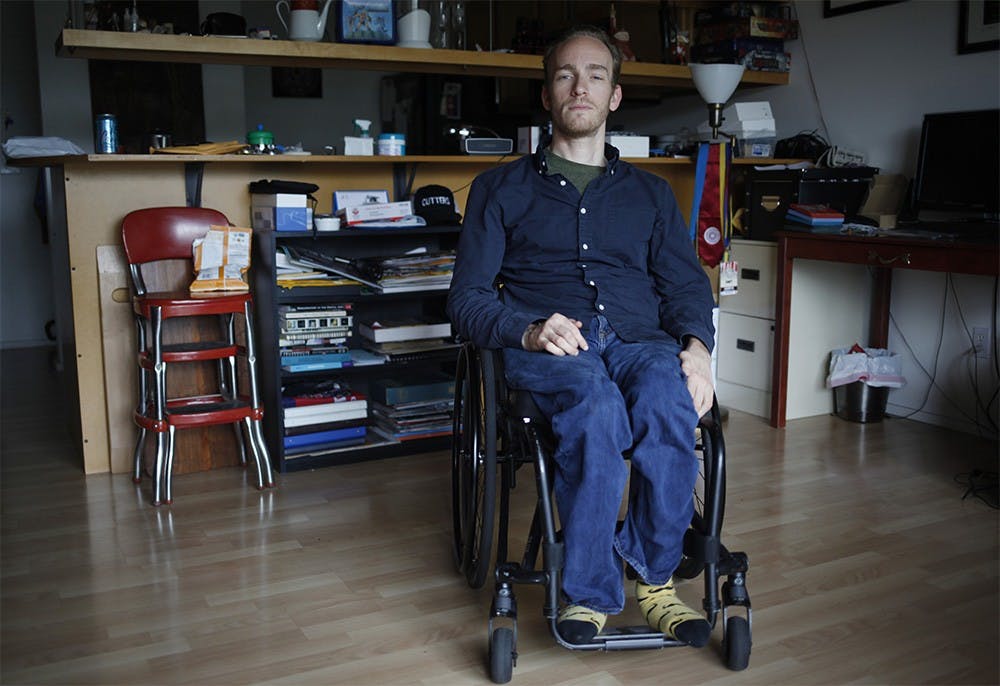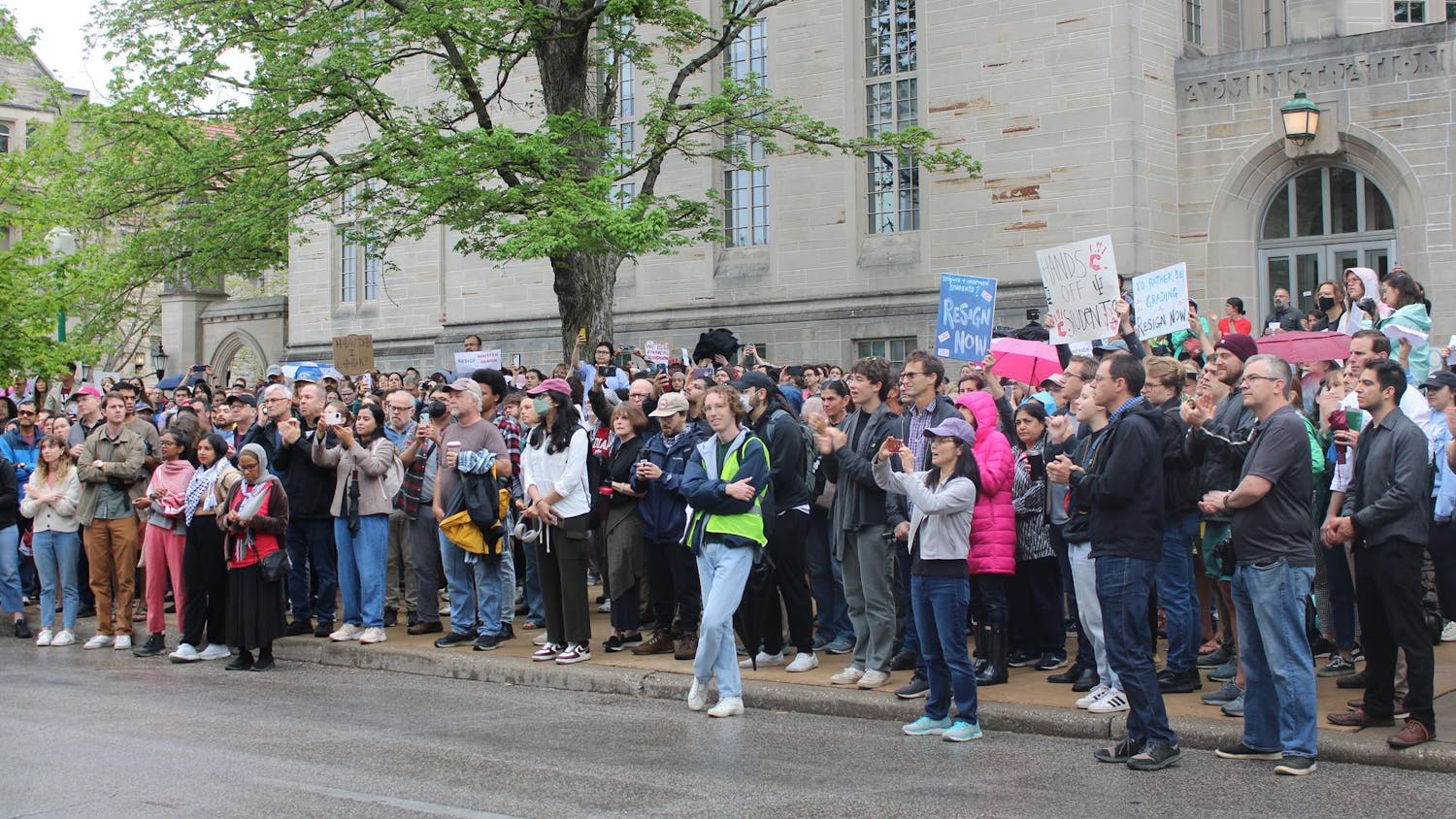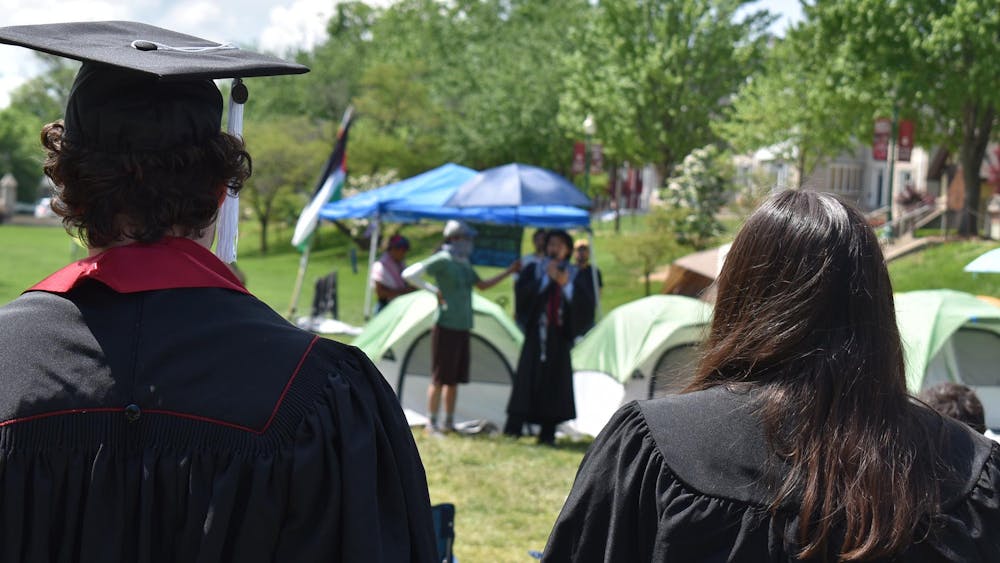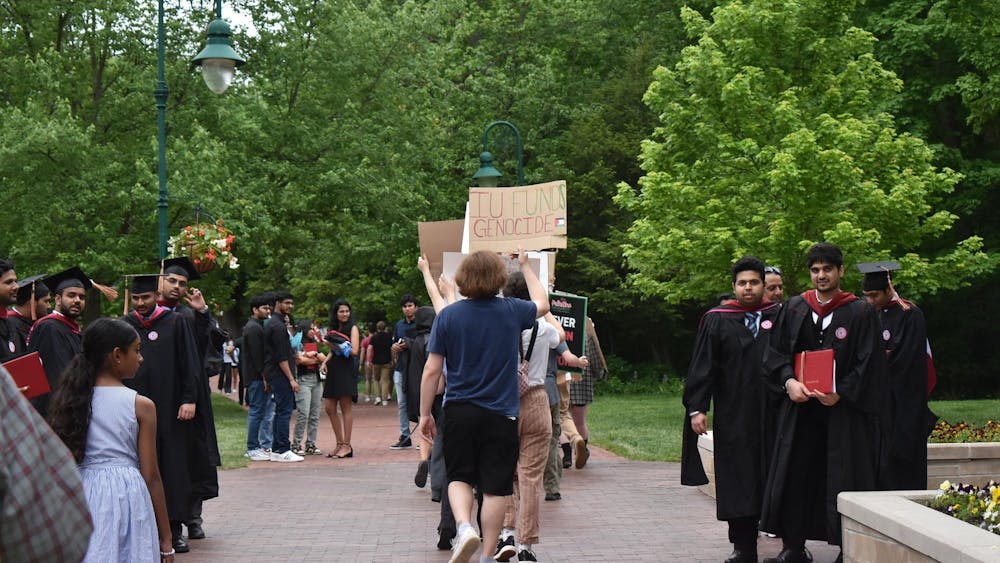He knows he was 11 years old, a sixth grader. He remembers having a friend over to his home in Bloomington while his dad was at work, and his mom was taking his siblings to Indianapolis.
It wasn’t the first time he had entered his father’s safe. He had known for a while exactly where the combination was hidden. But he had never taken out this many firearms and displayed them to a guest.
“To me it was an education session,” Jones, who is now 34, said. “I was really stoked on being a dude and knowing about these guns and showing that off.”
Jones doesn’t remember his friend standing only four or five feet away from him holding the only gun Jones’ father kept loaded. He doesn’t remember the sound of .38-caliber bullet exploding out of the barrel. He doesn’t even remember clutching his hands around his neck, telling his friend to call 911 and falling backwards onto the floor.
***
Though the incident remains fuzzy, the effects of that bullet wound are strikingly obvious in Jones’ day-to-day life.
Though Jones is able to use his arms, he is considered a quadriplegic. He has no feeling from his chest down.
He doesn’t blame his friend for what happened to him; in his mind, they’re both victims. He doesn’t even blame his father, really.
“The determinant of me being shot is an overly masculine, misguided, unregulated society that promotes guns and aggression as solutions to problems,” Jones said. “The purpose of guns is killing something. They’re not a safety mechanism.”
***
MeLinda Porter grew up in a household very different from Jones’.
Before she met her husband, she had been scared of all types of guns and never dreamed of shooting one.
“I basically thought that guns could shoot people just sitting there,” she remembers. “I thought that a bullet was on a shelf it could just go off and shoot somebody.”
That sort of upbringing seems shocking when talking to Porter today. The founder of the group Indiana Moms Against Gun Control almost always has a loaded gun on her person, even when she’s at home with her three young children.
“If you’re a mama bear protecting your cubs, you want to have everything available at your disposal to save your children,” Porter said. “That is why I honestly started carrying.”
Porter and her husband have daily talks with their 5-year-old son about gun safety. Their first rule is not to touch a gun without permission. Their second rule is, once the child is given permission, he should ask whether or not the weapon is loaded. They’ve taught their son to use airsoft guns and have let him help clean the real guns in the house.
Porter said she feels that by taking away the mystery behind firearms, she will encourage her children to be smart and safe.
Though Porter said she mostly carries a weapon to shoot coyotes outside of her family’s home in rural Indiana, she is concerned about coming into contact with armed criminals.
“I was raised a trusting person, and it took me a long time to understand this viewpoint, but there are people out there who are just looking for situations where they can take advantage,” Porter said. “They’re sick individuals who have no moral compass whatsoever and are just intent to destroy as many people as they can.”
***
In light of last month’s shooting in Charleston, South Carolina, the debate on gun control is once again at the forefront of American politics.
“As we take the time to heal in the shadow of this most recent tragedy, we have to ask ourselves what more we can do as individuals and communities to prevent guns from getting into the hands of dangerous individuals,” President Obama wrote in a press release issued June 28. “The lack of movement in Congress on this issue is incredibly frustrating. But their refusal to act won’t stop progress.”
In Indiana, it was recently made legal to purchase a sawed-off shotgun, an act further weakening the state’s gun control restrictions. People do, however, require a special license to own this sort of weapon.
“Right now in Indiana, it’s easier for someone to buy a gun than it is to get a job at McDonald’s,” said Paul Helmke, a professor of practice at the School of Public and Environmental Affairs. “I’m not anti-gun. I just think we need to make it harder for bad guys to get them.”
Helmke, who served as the president of the Brady Campaign to Prevent Gun Violence for five years, said he believes the simplest way to do so is by requiring stronger background checks.
Porter feels any restrictions put on gun ownership would only harm law-abiding citizens. Though she said she believes responsible gun owners should receive training and know how to use their guns, she does not think training should be required.
“Then you’re keeping people from owning a gun because they can’t afford to go through a class,” Porter said. “It’s a slippery slope, so that’s generally why we’re against those types of things. It’s just a stepping stone towards more regulations.”
Jones agrees with Helmke that stronger regulations are important, but also thinks there could be more innovative ways of changing gun culture in America.
He mentioned one gun that only fires when it recognizes the owner’s fingerprint on the trigger as an example of how technology could be used to make firearms safer.
“It’s a social problem — a social disease,” Jones said. “I don’t have all the answers, but in an environment where people can’t control themselves, you can’t not regulate their behavior.”






